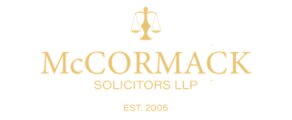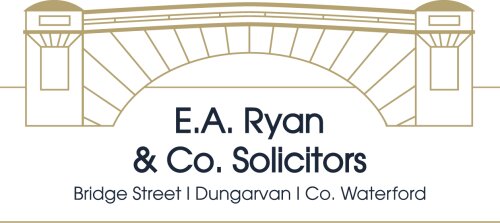Best Child Abuse Lawyers in Ireland
Share your needs with us, get contacted by law firms.
Free. Takes 2 min.
Free Guide to Hiring a Family Lawyer
Or refine your search by selecting a city:
List of the best lawyers in Ireland
About Child Abuse Law in Ireland
Child abuse in Ireland is a serious issue that covers physical, emotional, sexual abuse, and neglect. Irish law prioritizes the protection and welfare of children and has established comprehensive legislation to prevent abuse and prosecute offenders. The Child Care Act 1991 and other relevant statutes provide the framework for safeguarding children's rights and specify the responsibilities of the State and other agencies involved in child protection.
Why You May Need a Lawyer
There are several situations where obtaining legal advice or representation might be necessary:
- If you suspect a child is being abused and wish to report it, understanding the legal process is crucial.
- If you are a victim of child abuse seeking justice and compensation, legal guidance can help navigate complex procedures.
- If there's an ongoing investigation or legal proceeding in which you are involved, legal representation ensures your rights are protected.
- If you are a parent or guardian accused of child abuse, you need a lawyer to ensure due process and fair treatment.
- Child protection cases due to family disputes may require legal assistance to advocate for the child’s best interests.
Local Laws Overview
The legal framework around child abuse in Ireland includes several key pieces of legislation:
- The Child Care Act 1991: This act is the cornerstone for child welfare and protection, outlining responsibilities of health boards (now the Child and Family Agency, Tusla) concerning child care and protection.
- The Children First Act 2015: Establishes obligations for organizations to prevent and report child abuse and mandates certain professionals to report suspicions of abuse.
- The Criminal Justice (Withholding of Information on Offences Against Children and Vulnerable Persons) Act 2012: Makes it an offense to withhold information relating to a serious crime against a child.
- The Domestic Violence Act 2018: Offers protections for children in domestic settings where violence might be present.
Frequently Asked Questions
1. What constitutes child abuse under Irish law?
Child abuse includes physical, emotional, and sexual abuse as well as neglect. Each has specific criteria that qualify as abuse under Irish law.
2. How can I report suspected child abuse?
Suspected child abuse can be reported to Tusla, the Child and Family Agency, or directly to the Gardaí (police). Tusla has dedicated channels for reporting abuse.
3. What happens after a report is made?
After a report, Tusla conducts an assessment to determine the child’s immediate safety needs and whether further investigation is warranted. The Gardaí may be involved if criminal investigations are necessary.
4. Are there confidentiality requirements in reporting?
Yes. When making a report, the individual’s details are kept confidential as much as possible, but may be disclosed if required by law for investigation.
5. Can a child give evidence in court?
Yes, but there are special provisions in place to make the process less traumatic, such as giving evidence through video link.
6. What if I am falsely accused of child abuse?
If falsely accused, it is crucial to seek legal assistance immediately to protect your rights and navigate possible legal proceedings.
7. Are there supports available for child abuse victims?
Yes, various support services are available, including counseling, medical services, and legal assistance tailored for abuse victims.
8. How long does a child abuse investigation usually take?
The length of an investigation can vary based on its complexity and the urgency required to ensure the child's safety.
9. Can I access legal aid for child abuse cases?
Legal aid may be available depending on individual circumstances, eligibility for which can be discussed with legal services.
10. How does the court decide custody in abuse cases?
The child’s welfare is the primary consideration in custody decisions, and evidence of abuse is a significant factor in determining custody arrangements.
Additional Resources
For those seeking assistance, several resources may be helpful:
- Tusla - The Child and Family Agency: Provides child protection services and guidance.
- The Garda Síochána: The national police service where reports can be made.
- The Legal Aid Board: Offers legal advice and representation to those in need.
- Children's Rights Alliance: Provides advocacy and information related to children's rights in Ireland.
Next Steps
If you find yourself needing legal assistance in a child abuse case, consider the following steps:
- Contact a specialized family law solicitor with experience in child abuse cases.
- Gather all relevant information and documents related to your case.
- Consider reaching out to support organizations for emotional and practical support.
- Make sure to adhere to any legal obligations you have, such as mandatory reporting.
- Stay informed about your rights and the legal processes involved.
Lawzana helps you find the best lawyers and law firms in Ireland through a curated and pre-screened list of qualified legal professionals. Our platform offers rankings and detailed profiles of attorneys and law firms, allowing you to compare based on practice areas, including Child Abuse, experience, and client feedback.
Each profile includes a description of the firm's areas of practice, client reviews, team members and partners, year of establishment, spoken languages, office locations, contact information, social media presence, and any published articles or resources. Most firms on our platform speak English and are experienced in both local and international legal matters.
Get a quote from top-rated law firms in Ireland — quickly, securely, and without unnecessary hassle.
Disclaimer:
The information provided on this page is for general informational purposes only and does not constitute legal advice. While we strive to ensure the accuracy and relevance of the content, legal information may change over time, and interpretations of the law can vary. You should always consult with a qualified legal professional for advice specific to your situation.
We disclaim all liability for actions taken or not taken based on the content of this page. If you believe any information is incorrect or outdated, please contact us, and we will review and update it where appropriate.
Browse child abuse law firms by city in Ireland
Refine your search by selecting a city.













